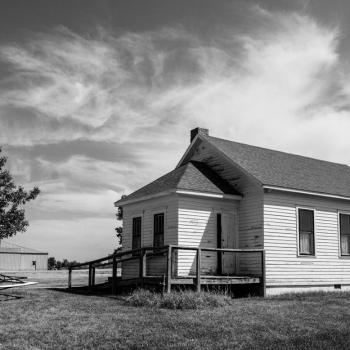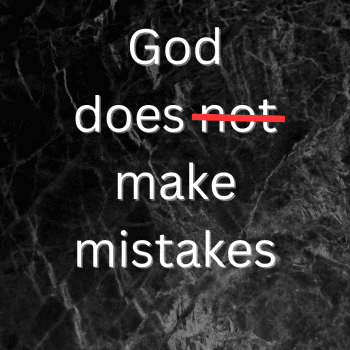Why Theologians?
I wasn’t always a theologian. But somewhere, in the middle of my journey, I decided that I wanted to be a pastor and it kind of came along with the territory. At first, I loved the systematic methodology of it all because I thought that it might somehow bring clarity to all this division, not just in politics, but in our understanding of God. Years and years later, my experience confirmed that there is no unity among believers in the Christian faith, but there is much division.
Catholics, Protestants, Orthodox, and various other divisions, and subdivisions of the Christian faith share one thing in common. And it is not a common understanding. The only reason a division of Christianity thinks that it is in unity is that it discovered some things that it thought were true, and stopped discovering and started defending what it wrote down.
When a group of theologians decided to platform a known abuser, it started me thinking about whether theologians were necessary, especially in the 21st century. Mostly, I have lots of questions and assumptions, and I think that these might be important things to consider in a post-Christian world.
- Has this profession of professor/pastor/priest/bishop accomplished anything significant in the past 1500 years?
- Are they defining truth or are they just addressing the toxicity of their predecessors?
- Why do we put theologians in positions of power?
- If theology and religion are quests to understand God, why not stay on the quest/journey and not view their findings as final or definitive?
- Why is there so much abuse coming at the hands of these theologians?
- In the 21st century, why is this profession still dominated by a white male patriarchy?
- Is the real unity among theologians the way that they stick together and discredit anyone who points out their shortcomings or accuses them of abuse?
- When we came to understand “love your neighbor,” why didn’t we stop there?
I assume that most mistakes we make are when we start to fear. Even though I don’t consider myself a Christian, I still admire Jesus to some degree. When the Church was focused on loving their neighbor and not their edifices and organizations, they thrived well even when they were persecuted. But, then, they let fear get the better of them and started organizing and putting theologians in positions of power and gathering people together in larger groups.
After joining the church with the Empire, it was pretty much a train wreck after that. Even though it reformed itself every 500 years or so, it was mostly fixing the problems caused by the theologians. When they feared, they controlled, and it continued into the 21st century.
I know many will say, “But look at the hospitals and other things that were built because of religion and theology.” I usually respond to this by reminding them that 70% of the organization’s expenses are staff and building expenses, and only a small percentage goes to things that help people. Because many theologians are narcissistic (an assumption on my part), they like their organization and their buildings to be big, and they love to be platformed where people pay them money for their opinion.
When I try to suggest these kinds of ideas to theologians, they band together and patently deny that their positions are not mutually beneficial. I suppose that would be true of any profession. It was a hard pill for me to swallow when I stepped down from ministry because my beliefs were changing. “What will they do without me?” was a misguided fear that I had every time I left a leadership role behind. Years later, I realized that over the years we have fostered a codependency and learned helplessness. Theologians point to the helplessness of their followers, failing to realize they have created the dysfunction.
Especially in the 21st Century: there should be fewer gatekeepers of information and more and more Mystics. And we should run away from any huckster that tries to sell their brand of truth, only after telling us what we should be afraid of. The “It’s the other guys that are the problem” rhetoric has worn thin, and we are all tired of supporting the charming, toddlers in charge who demand what they want when they want it.
I have had several mentors in my life. Some good and some bad. The best ones pointed me to ideas (like love your neighbor, authenticity, and compassion). The worst advice came from people who charged me for the advice and considered their offering etched in stone. The best advice was always “This is what I experienced,” and never “This is what I believe.”
One of the best mentors in my life was my son who suggested, “You might want to consider…” and that is what I am still doing.
I would like to see all the world’s theologians repurposed as Mystics, but I don’t think you can be both at the same time.
All of us should be on the same journey to experience the spiritual and “love our neighbor.”
Be where you are, Be who you are, Be at peace.
Karl Forehand
A Treasure Trove of Trauma Resources
Barbie Gets Revenge on Greg Locke
314 – Unmasking Patriarchy: Diagnosing Narcissism & Abuse
What’s Wrong with God’s Plan and Purpose?
https://thedesertsanctuary.org/leaning-forward-2023/

Karl Forehand is a former pastor, podcaster, and award-winning author. His books include Out into the Desert, Leaning Forward, Apparent Faith: What Fatherhood Taught Me About the Father’s Heart, The Tea Shop and Being: A Journey Toward Presence and Authenticity. He is the creator of The Desert Sanctuary podcast and community. He is married to his wife Laura of 35 years and has one dog named Winston. His three children are grown and are beginning to multiply! You can read more about the author here














